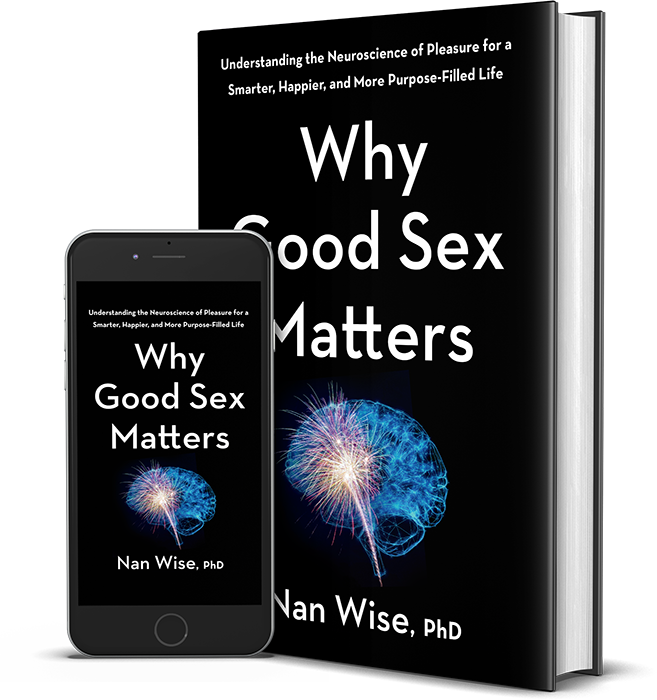What are the signs of an unhappy relationship? Why do people stay in them? How can you communicate to a partner that you are not satisfied, and if you can’t improve the relationship, how do you leave in a way that is healthy and empowering?
In this article, we’ll take a closer look at the signs and symptoms of an unhappy relationship and the red flags that help us improve as individuals so we can maintain quality relationships with our partners.
In This Article:
- Signs And Symptoms
- Why People Stay in Unhappy Relationships
- How Partners Learn to Communicate More Effectively
- Leaving An Unhappy Relationship
One of the biggest issues underlying the signs and symptoms of an unhappy relationship is the striking inability to really listen and hear each other. Giving couples tools to modulate their emotional reactivity such that they can productively listen to each other is key in helping them communicate dissatisfaction, assert their needs and wants, and complete the growth they need to facilitate in themselves. This process can transform the relationship breakdown into a breakthrough, whether they decide to stay together or leave the relationship in a healthy loving way.
9 Major Signs And Symptoms Of An Unhappy Relationship
1. Blaming Your Partner
Relationships work when each partner takes 100% responsibility (not 50%) for their partnership. This means that we are entirely responsible for how we react to our partners, regardless of the issues at hand. We know that one of the biggest predictors of relationship outcomes is how well a partner responds to when he or she feels mistreated. All relationships have challenges. It is the ability to respond in a balanced emotional way to these challenges that helps partners grow and flourish in their partnership.
2. Being Judgmental or Having Contempt For Your Partner
In conflicts or disagreements with our partners, we tend to think we are right, and our partners are wrong. But research shows that most of what couples fight about are matters of opinion, rather than issues of being right or wrong. When we judge our partners, they are less likely to want to work with us or see things from our perspective.
Adapting a non-judgmental attitude is one of the superpowers of those who are great at relationships. This takes practice and a level of self-awareness – as we know our minds love to judge! It is also a great opportunity for showing compassion for our partners whose perspectives may be different than our own. So, the practice of effective partnership is to give “the benefit of the doubt” and not rush to judgment or negative conclusions.
3. Being Defensive, Dismissive, or Unwilling to Compromise
The minute you walk away from a disagreement, shut down or respond negatively to your partner, you can bet that your relationship is heading for trouble. These are “disagreement offenses” as Atkinson writes, in addition to the offense of being judgmental.
4. Not Understanding Where Your Partner Is Coming From
Rushing to judge, be defensive or offensive will make it more difficult to understand and appreciate your partner’s motivations for his actions. Taking a partner’s perspective on what is at stake for them –and how what they are saying or doing makes perfect sense to them even if it doesn’t to you—gives us an amazing opportunity to expand our world view and make more sense of theirs.
5. Not Identifying Underlying Needs, Values, and Worries
This is typically exemplified by an emotional overreaction to something that, on the surface, might appear simple. To do this, we have to start with ourselves. If you don’t get clear on what is triggering you, how are you going to be able to respond in a healthy way to your partner? This entails being in touch with the bigger meanings you are creating that get in the way of your being able to respond positively to a partner’s request or opinion. For example, if you fear that if you do what the partner wants, it will be a threat to your own dreams/wants or somehow threaten the “safety” and security of the relationship, you will likely be unable to resolve the conflict successfully unless you recognize and address your own fears in order to seek some reassurance from the partner.
6. Not Giving and Asking for Equal Regard
Couples in trouble do not see that both of their needs and wants are equally important. They may overvalue their own needs and undervalue the other’s, or vice versa. This results in a couple who are only willing to consider each other’s or needs if it is consistent with their own. The other’s needs will only make sense to them if they fit their own schemas.
7. Not Offering Assurance
Couples who have good relationship skills can sometimes have fights that end up being nasty or unproductive. When this happens, they learn how not to make it a big deal. They assure their partners that they will not be judgmental. They instead agree to be flexible, and willing to work together towards an outcome that is satisfactory for both.
8. Not Taking a Stand for Yourself or Making a Big Deal That You Have To
Partners in trouble assume that their partners already know what they need and want. Our partners are not mind-readers and it is unfair to expect them to give us what we want without being asked. Aside from being childish and unfair, this is a big relationship offense. When we are not willing to take a stand for what we need and want from a calm but firm stance, we set ourselves and our partnerships up to fail.
Successful partners are willing to take stands for themselves on key issues, over and over, without making it out to be a big deal. We need to understand that all relationships come with issues. Rather than going into gridlock about an issue, one must go back and talk about the problem with goodwill, persistence, and calm.
9. Not Addressing Imbalances in Our Core Emotional Systems
Not attempting to regulate Imbalances in our core emotional systems – particularly our defenses, that flair up in the context of our relationships meshes up nicely with the #1 issue which is not taking 100% responsibility on our side for what we are creating. Statements like, “you made me feel angry, or insecure, etc.” reveal that the partner is holding the other responsible and is not willing to consider how their own emotional response may likely have roots in their own interpretations, fears, old experiences, rather than residing in the partner’s actions.
Healthy partners acknowledge that they certainly have feelings about what transpires in a relationship but recognize when the emotional reaction has roots in history or imbalances in their own emotional systems. In my book, I outline our 7-core wired in emotional systems that help us get our needs met in the world and help clients understand and operate them more effectively.
Why Do People Stay In An Unhappy Relationship?
Dissolving intense and primary emotional bonds is hard for most people. It is particularly difficult for people who have anxious attachment or unfinished emotional business with their partners. Often, what makes people stay in an unhappy relationship is the hope that they can “change” their partners and eventually get their own needs met when they do.
Imago Theory holds that we are attracted to partners who are in some ways like the caregivers who may not have gotten our needs met. With unmet needs, we look to get from our partner what we didn’t’ receive from the original caregiver. I encourage clients to focus on how they can develop themselves more fully so they benefit from their relationships. When partners do the work, they can decide to stay or leave, but they do it from a place of appreciation and taking responsibility for their own journey.
How Can Partners Learn to Communicate More Effectively?
One of the biggest issues underlying an unhappy relationship is the inability to really listen and hear each other. What most unhappy couples do is to communicate with an agenda; to convince their partners that they are wrong, to enroll partners in their own point of view, to influence the direction of the conversation, or otherwise accomplish some self-serving goal. This kind of conversation often breaks down into gridlock or conversely explodes into distress. What I have found is key for helping clients communicate is to teach them this tool—predicated on their own ability to tolerate the feelings they are having during the session, as well as their feelings about their partners feelings, ad infinitum.
How Do You Leave an Unhappy Relationship?

Take complete responsibility. Seek counseling even if you know you don’t want to stay in an unhappy relationship. By doing so, you benefit by developing the parts of you that are ready to bloom. I always tell clients who come in for therapy the work is the same whether you stay together or separate. It is part of growing as an individual. If you do so, and the relationship no longer fits, you can leave it with love. Breakdown, breakthrough.
Conclusion
As Leo Tolstoy proposed most famously in Anna Karenina: “All happy families are alike; each unhappy family is unhappy in its own way,” Similarly, all happy couples are alike, but each unhappy couple is unhappy in their own unique way.
In order to be happy, a couple must be successful in managing many aspects of the relationship; including their sex life, which is an important force in helping them bond in the first place, and if it continues to be reinforcing, it can be an ongoing source of relational satisfaction. But beyond the bedroom, happy couples need to figure out how to deal with money, decisions about parenting, lifestyles, religion, and relations with in-laws and community, etc. Failure on only one of these counts can likely lead to unhappiness and steal the joy from our romantic partnerships.
By failing in any of these areas, there are more ways for a couple to be unhappy than happy. What happy couples have are skill sets that set them up to be more effective across the board—regardless of their personality styles, demographics, and idiosyncratic variables that we tend to think are significant.




